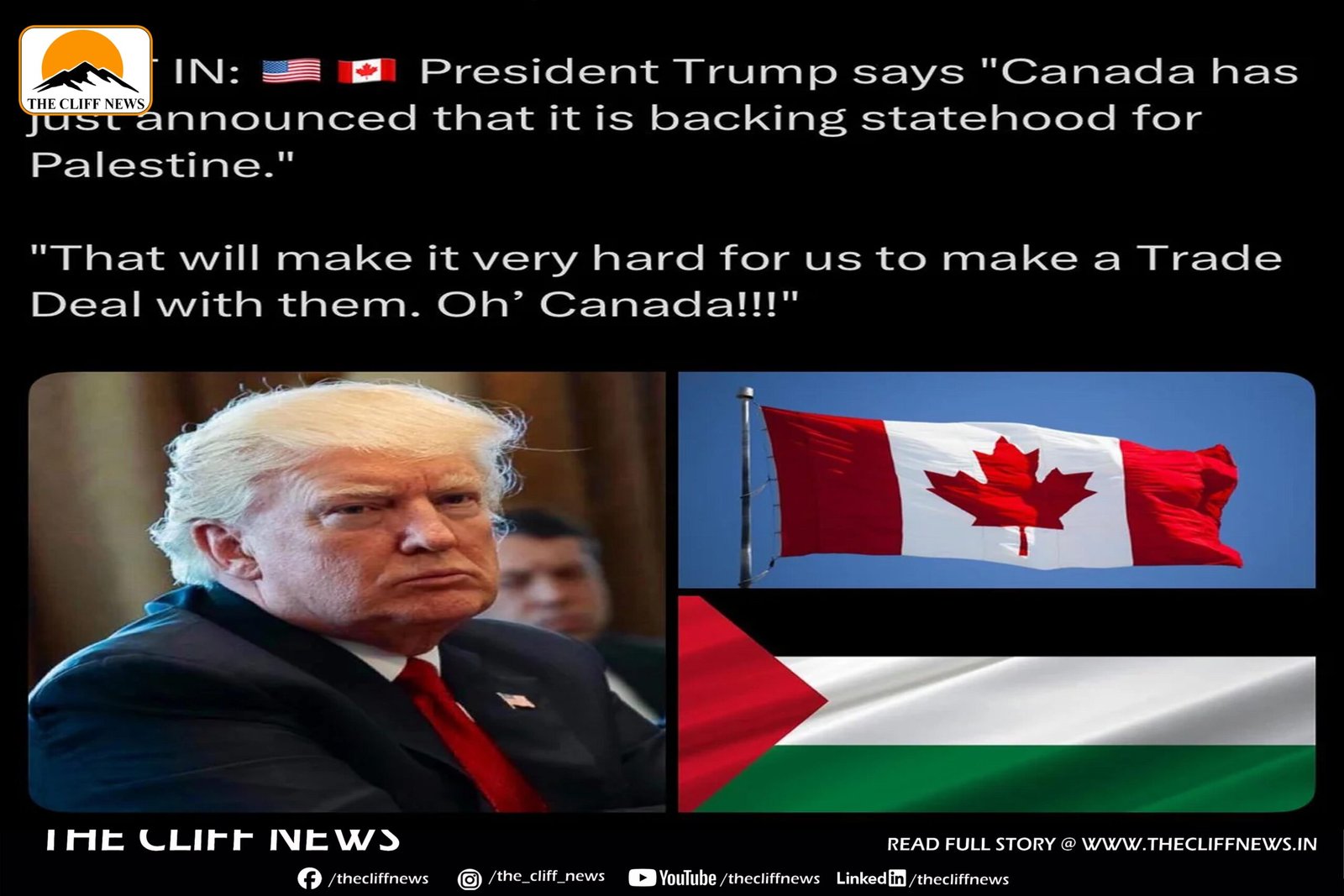Trade negotiations between Canada and the United States have hit turbulent waters after Canadian Prime Minister Mark Carney announced his government’s intent to recognize Palestinian statehood at the upcoming United Nations General Assembly, drawing a sharp response from former U.S. President Donald Trump.
In a post on Truth Social, Trump criticized Canada’s move:
“Wow! Canada has just announced that it is backing statehood for Palestine. That will make it very hard for us to make a Trade Deal with them. Oh’ Canada!!!”
The comments come just days before an August 1 deadline to finalize a new trade agreement between the two nations. Trump has threatened to impose a 35% tariff on all Canadian goods not covered under the current US-Mexico-Canada Agreement (USMCA) if a deal is not reached.
While Carney confirmed that tariff negotiations have been constructive, he admitted that a final deal may not be ready by the deadline. The unexpected foreign policy move has now introduced a new layer of complexity into the talks.
Canada’s Move: Conditional Recognition of Palestine
Carney announced that Canada plans to formally recognize the State of Palestine during the 80th UN General Assembly in September, following recent similar declarations by the United Kingdom and France. However, he stressed that Canada’s recognition is conditional. The Palestinian Authority (PA), led by Mahmoud Abbas, would need to:
- Commit to demilitarizing the Palestinian state,
- Exclude Hamas from participation in the 2026 general elections, and
- Implement institutional reforms.
Carney said the decision was driven by the deteriorating situation in Gaza, stating, “There is no room for delay in coordinated international action to support peace.”
U.S. and Israeli Response
The U.S. administration, under Trump’s leadership, has rejected any recognition of Palestinian statehood, arguing it rewards Hamas. Trump, known for his unwavering support of Israel, has maintained that the policy undermines Israeli security and legitimizes terror, despite acknowledging widespread starvation in Gaza.
The Israeli embassy in Ottawa condemned Canada’s announcement, saying it legitimizes the “barbarity of Hamas,” referring to the group’s attacks on October 7, 2023. In contrast, Palestinian Authority President Mahmoud Abbas welcomed Canada’s move as a “historic” step.
A Growing International Shift
Canada’s decision aligns it with France, which recently announced its intent to recognize Palestine at the same UN session. The UK, under Prime Minister Keir Starmer, has also pledged recognition—conditional upon Israeli agreement to a ceasefire and other key steps.
Carney’s statement reflects a shift in Canada’s long-standing position that a two-state solution must come through bilateral negotiations. “Regrettably, this approach is no longer tenable,” he said, citing not only Hamas terrorism but also the expansion of Israeli settlements in the West Bank and East Jerusalem.
Trade at Risk
With a trade deadline looming and Trump’s threat of steep tariffs on Canadian imports, Carney’s diplomatic stance could come at a high economic cost. The 35% tariff would hit sectors not covered by USMCA, putting Canadian exports at risk and possibly triggering retaliatory measures.
This development highlights the deepening rift between North American allies over Middle East policy—and the high-stakes balancing act between foreign diplomacy and economic pragmatism.
The world will now be watching whether Canada’s principled stance will stall its trade talks with Washington—or force a recalibration in U.S. policy as global consensus begins to shift on Palestine.



